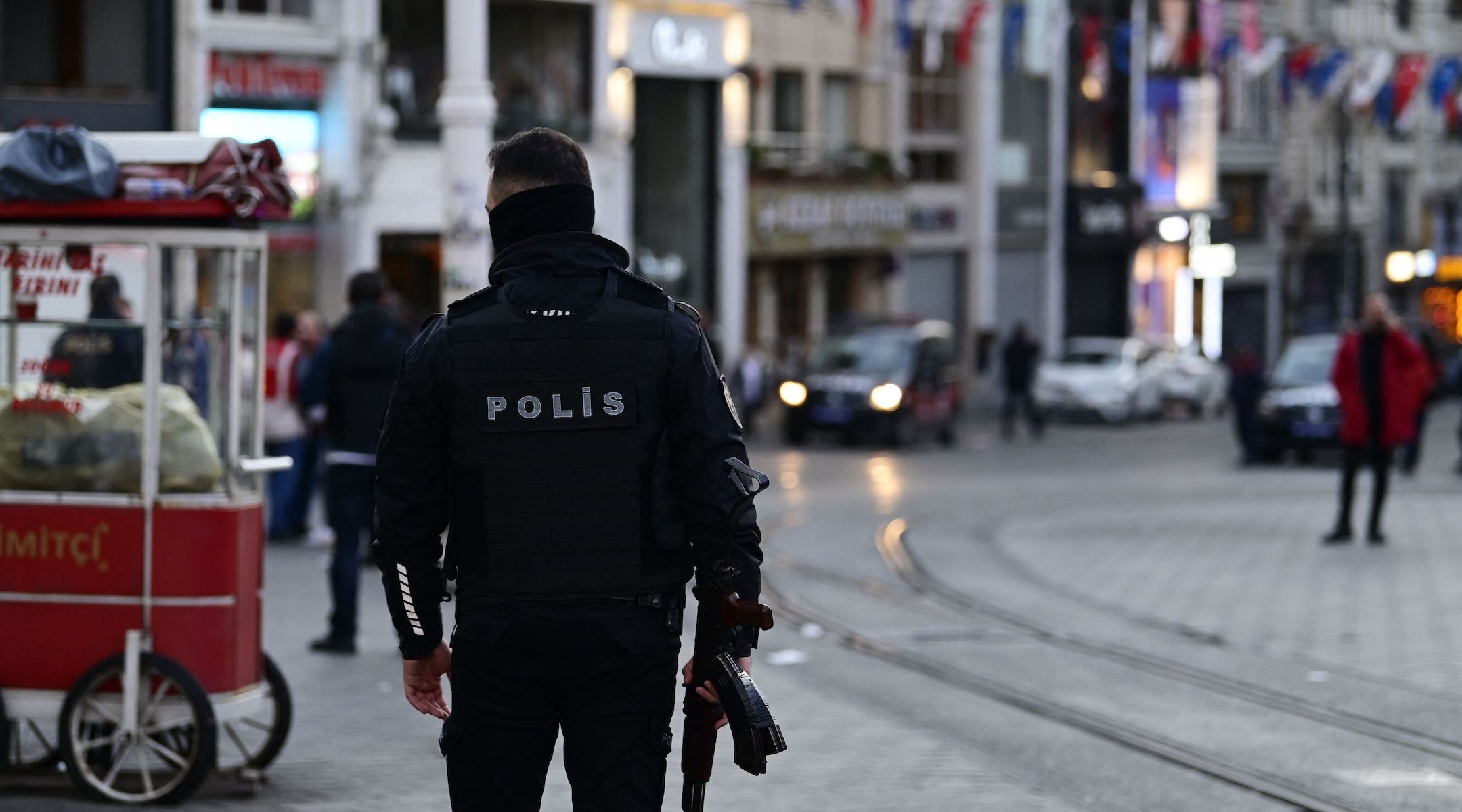Turkey arrests 44, claiming they are tied to Mossad
The arrests, which did not target any Israelis, come at a relative high point in Turkish-Israeli relations

A Turkish police officer is seen in Istanbul, Nov. 13, 2022. (Yasul Akgul/AFP via Getty Images)
(JTA) — Turkey arrested 44 people on Wednesday for what officials claimed was their involvement with Mossad, the Israeli intelligence service, Turkish media reported.
Those arrested appear to be largely Turkish citizens, and the group includes several private detectives, as well as the director of a private detective firm named Ismail Yetimoglu. No Israelis were arrested.
According to Turkish media, those arrested have been accused of shadowing Palestinians and pro-Palestinian organizations in Turkey. Israel has not publicly addressed the arrests.
The arrests come at a warm point in Turkish-Israeli relations, as the two countries recently exchanged ambassadors for the first time in years. This past spring, Mossad’s collaboration with MIT, the Turkish intelligence service, was touted as essential in ending a plot by an Iranian-backed terror cell targeting Israeli tourists in Istanbul.
Still, Turkey has continued to work closely with leadership of Hamas and others that Israel considers terror groups.
“This is a very clear message to Israel, that normalization does not mean that you can act against Palestinians inside Turkish territory,” Hay Eytan Cohen Yanarocak, a Turkey scholar at the Jerusalem Institute for Strategy and Security, told the Times of Israel.
Turkey has used the claim of Mossad involvement to arrest others before. Last year, an Israeli couple spent eight days in Turkish prison for taking pictures of Istanbul’s Dolmabahce palace. The palace, which housed the final sultans of the Ottoman Empire from 1856 until its dissolution in 1922, is largely a tourist site, but it does also include the Istanbul offices of the Turkish president. The two Israelis were charged with political and military espionage.
Their release was ultimately secured through discussions between Israeli President Isaac Herzog and Turkey’s President Recep Tayyip Erdogan. The latter credited his discussion with Herzog as kicking off the thaw in Turkish-Israeli relations which had been frigid since 2010’s Mavi Marmara incident, when Israeli security forces raided a humanitarian fleet headed to Gaza, killing 10 Turkish activists.
This article originally appeared on JTA.org.















